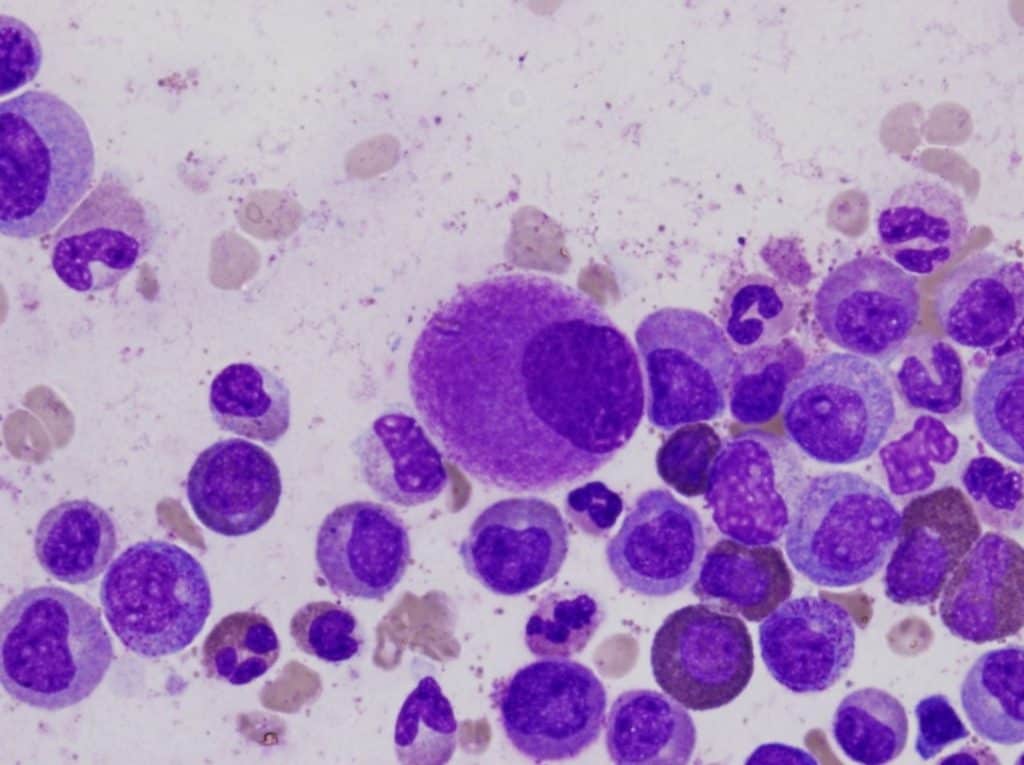
NHS restriction of CML treatment in England criticised
pharmafile | August 27, 2015 | News story | Medical Communications, Sales and Marketing | NHS, NICE, chronic myeloid leukaemia, leukaemia
Medical experts have criticised NHS cost regulators’ decision to limit the use of Ariad’s Iclusig (ponatinib) in the treatment of Chronic Myeloid Leukaemia (CML) for patients with advanced disease in England, leaving only patients in Scotland and Wales with full access to the drug.
Iclusig, a novel new tyrosine kinase inhibitor (TKI), was approved by the European Medicines Agency (EMA) in 2013 as an orphan drug, as it was deemed of significant benefit to those affected by the condition.
However, it is not considered for use in England by the National Institute for Health and Care Excellence because of its small target population, leaving the decision on access with the Cancer Drugs Fund, which says the drug can only be given to the 2-20% of patients with the rare T315I mutation.
The All Wales Medicines Strategy Group (AWMSG) and the Scottish Medicines Consortium (SMC) conducted rigorous clinical and economic analyses and deemed Iclusig to be a good use of resources, leading to the drug’s approval for use.
David Ryner, chair of the Chronic Myeloid Leukaemia Support Group in the UK, was highly critical of the decision. “People with CML in the UK should have equal access to innovative treatments irrespective of where they reside,” he comments. “The current system is failing patients who have few treatment options available to them and we are calling for a resolution to the inequity of access as quickly as possible. Recent advancements in CML management provide patients with the opportunity to lead to a normal life and contribute to society.”
A recent poll by the National Cancer Research Institute CML Working Group revealed concern among the leading experts that the current restrictions compromise the ability of doctors to give optimal care to CML patients in England.
The poll revealed that 83% of respondents believe that CDF should change its policy and make Iclusig available to all appropriate patients in England in line with the drug’s full licence indication, as in Scotland and Wales, and that the majority of respondents believe that the CDF’s decision to restrict Iclusig puts cost savings above best practice.
Prof Mhairi Copland, chair of NCRI CML Working Group and professor of Translational Haematology, University of Glasgow says: “Despite major medical advances, the management of some patients with chronic phase CML remains challenging due to resistance and intolerance to existing treatments. These patients have a poor outlook and new innovative treatment options that can potentially extend life are important. These treatments should be available on an equal basis to all people with chronic phase CML across the UK; the decision should be medical, not geographical.”
Many patients with a new diagnosis of leukemia have a prolonged clinical benefit from targeted therapy with tyrosine kinase inhibitors (TKIs). However, there is a high unmet need and poor prognosis for patients with advanced disease who develop resistance and intolerance to other therapies.
Once available treatment options are exhausted, the prognosis is poor. Despite advances in treatment, there remains a need for additional therapies for the management of CML. A new treatment such as, Iclusig (ponatinib) fulfils an important need in the treatment pathway for these CML patients.
Yasmita Kumar
Related Content

Digital mental health technologies – a valuable tool in supporting people with depression and anxiety
The potential benefits of digital mental health technology for managing depression, anxiety and stress, together …

A community-first future: which pathways will get us there?
In the final Gateway to Local Adoption article of 2025, Visions4Health caught up with Julian …

The Pharma Files: with Dr Ewen Cameron, Chief Executive of West Suffolk NHS Foundation Trust
Pharmafile chats with Dr Ewen Cameron, Chief Executive of West Suffolk NHS Foundation Trust, about …






